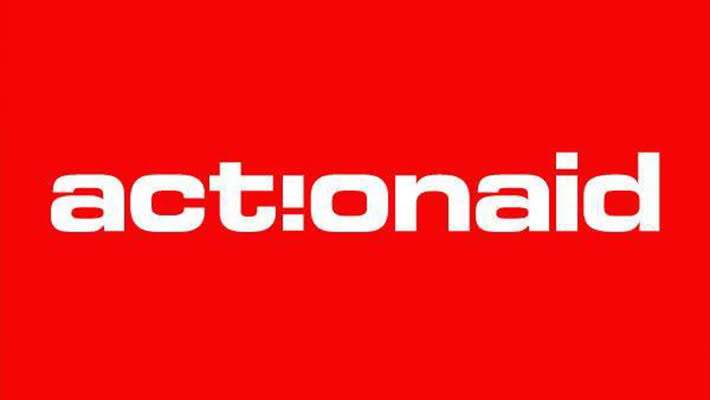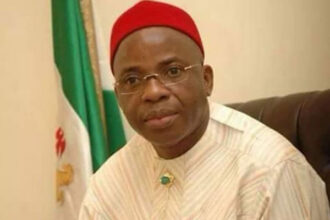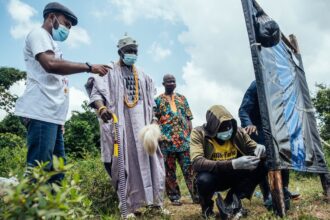By Palma Ileye
ActionAid Nigeria has lauched a campaign to end austerity measures in the country also noting the need to raise awareness on the negative impacts of austerity policies on citizens, particularly increasing poverty, inequality, and social exclusion.
Speaking yesterday during the launch, Country Director, ActionAid Nigeria, Andrew Mamedu noted that in the past decade, Nigeria’s socio-economic landscape has shifted dramatically, with consequences that have been particularly harsh on the most vulnerable members of the society; women, children, and the poor.
Mamedu said that the underlying cause of this poverty was rooted in the heavy burden of austerity measures, imposed as part of broader macroeconomic policies.
He said that based on ActionAid’s research, from 2010 to 2020, Nigeria’s debt stock ballooned by over 300%, reaching a staggering ₦31 trillion by the end of 2020 and as of March 31st, 2024, debt stock stands at USD 91,463.99, equivalent of N121, 670.49 trillion consuming 74% of government revenue, leaving little for vital sectors such as education, healthcare, and social protection.
According to him, AAN’s latest research disclosed that the poverty rate in Nigeria has surged, with over 40% of the population living below the poverty line adding that this translates to over 133m Nigerians living in multidimensional poverty.
He explained that education, once a beacon of hope for social mobility, has suffered immensely saying that over 38 million children remain out of school in Africa, with Nigeria accounting for a significant share of these numbers as girls from poor and rural communities were particularly affected, with less than 5% completing secondary education.
He said that the quality of education has deteriorated, and many schools lack even the most basic resources as today, over 17 million teachers were needed across Africa, with Nigeria in dire need of a significant portion.
“Healthcare, too, has been ravaged. Clinics are dilapidated, understaffed, and underfunded. According to World Health Organisation, Nigeria ranks 2nd highest in maternal deaths worldwide in a 2023 report.
“According to the report, Nigeria accounts for 29 per cent of the global toll in 290,000 maternal deaths cases every year. Citizens continue to die from preventable diseases. These are the consequences of a system starved of investment due to the crushing weight of debt repayments and austerity cuts. Let us be clear: austerity does not affect all people equally. Women bear the brunt of its impact. As primary caregivers, they are disproportionately affected by cuts to healthcare and education,” he further explained.
Speaking further on austerity, the Country Director said that in communities across Nigeria, where austerity measures have led to the withdrawal of social services, it was women who step into the void, providing unpaid care work at the expense of their economic independence and well-being stressing that gender inequality remains pervasive. While women make up nearly half of the population, they were underrepresented in decision-making and economic participation.
According to the austerity report, he said that Nigeria has more than 64% representation of women in senior positions, but women earn only 50% of the income earned by men and despite efforts to close the gender gap, the lack of investment in women’s economic empowerment has only widened the disparities.
He noted that based on the research, Nigeria’s path out of poverty and inequality lies not in austerity, but in investment, investment in its people, services, and future.
He said that the following steps were essential: “Reform Economic Policies: We must shift from austerity to a more progressive fiscal approach. Our tax system must be reformed to ensure that the wealthiest individuals and corporations contribute their fair share. This could raise billions of dollars annually, much of which can be funneled into public sservice.
“Increase Education and Healthcare Spending: The government must prioritize social investment, particularly in education and healthcare. At least 20% of the national budget should be allocated to education, as recommended by international benchmarks. We also call for a significant increase in health sector funding to rebuild our healthcare system and ensure universal access to quality care.
“Empower Women Economically: Economic empowerment of women is not a luxury; it is a necessity. Policies must be designed to increase women’s access to credit, land, and employment. Furthermore, women’s voices must be at the forefront of decision-making processes, from the household to the highest levels of government.
“Tackle Debt and Financial Imbalances: Finally, we must address the root of the problem; our national debt. It is critical that Nigeria renegotiates its debt servicing terms and explores options for debt relief, freeing up resources for domestic investment.”
He also urged the government to prioritise public services and social welfare as an essential component of a just society adding that, “Our call to action extends beyond mere policy changes. We also call on Civil Society Organisations to mobilise, advocate for change and hold leaders accountable. In conclusion, Nigeria stands at a crossroads.”










